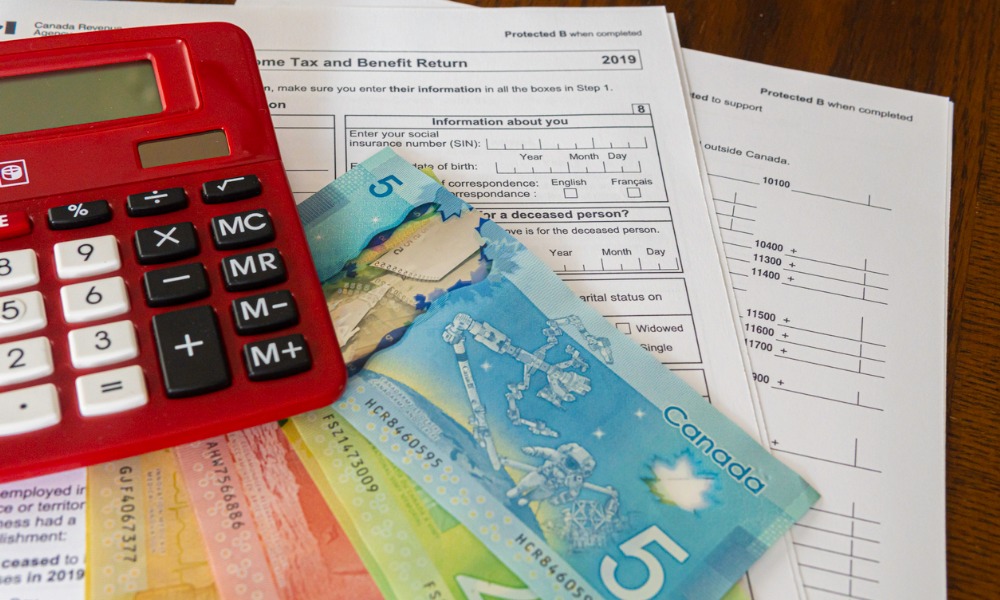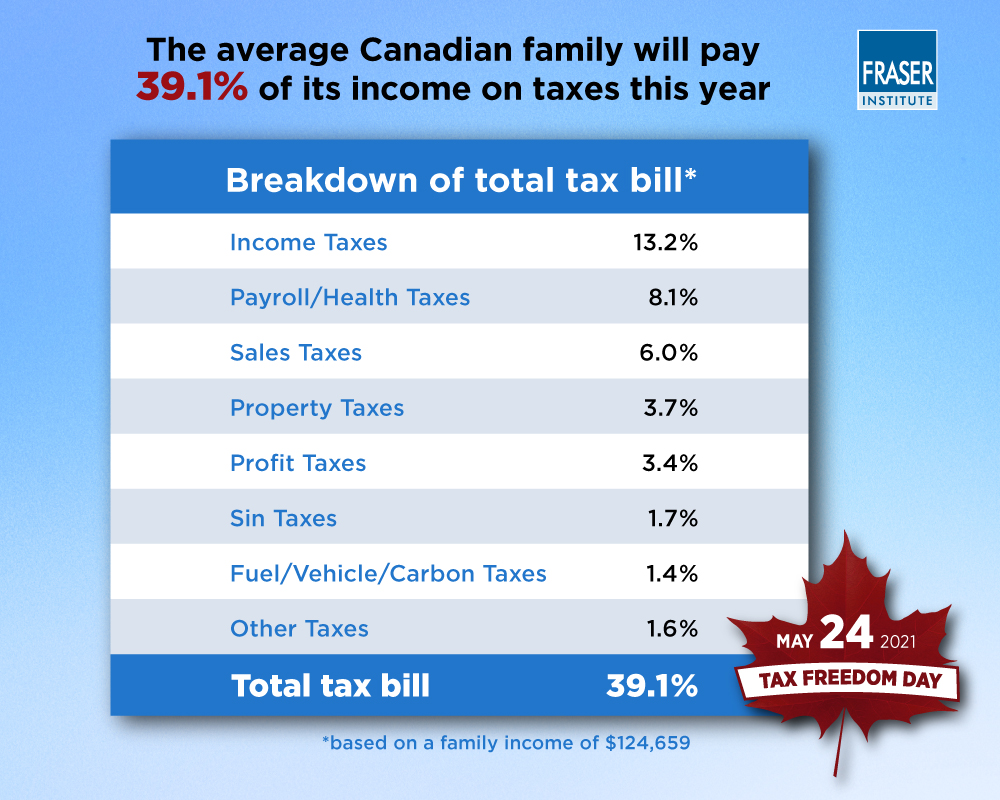The cost of paying for the pandemic is the uncomfortable truth heading our way for future years

Imagine if you had to pay every cent of the wide range of taxes due to all levels of governments, before keeping anything for yourself.
A chilling thought, especially with the additional burden of trying to help clients manage their finances in such a regime.
The theory is the basis for Tax Freedom Day, the day on which families would have completed their tax obligations to Canada’s governments and keep all of their income for the remainder of the year.
Last year, the day fell on May 17. This year it is Monday, May 24. In future years, expect it to be later.
The Fraser Institute calculates that the average Canadian family (with two or more people) will pay $48,757 in total taxes—or 39.1% of its annual income ($124,659) in 2021.
This tax burden includes income taxes, payroll taxes, health taxes, sales taxes, property taxes, fuel taxes, carbon taxes and more.
The increased tax revenue has pushed Tax Freedom Day back a week and, with a combined federal and provincial budget deficit of more than $233 billion, it will get later in future years.
Balanced budget
If budgets were to be balanced in 2021 using only taxes collected in the year, it would push Tax Freedom Day to July 7!
“Deficits are deferred taxes, so future generations of Canadians will have to pay significantly higher taxes for the unprecedented deficits governments across Canada are running,” said Jake Fuss, senior economist at the Fraser Institute.

Image credit: Fraser Institute



